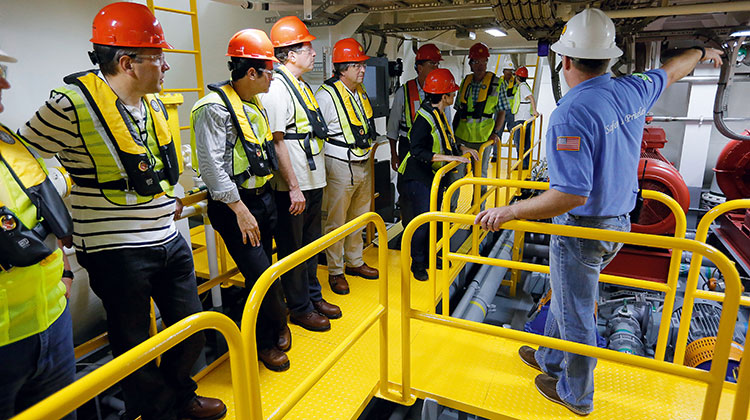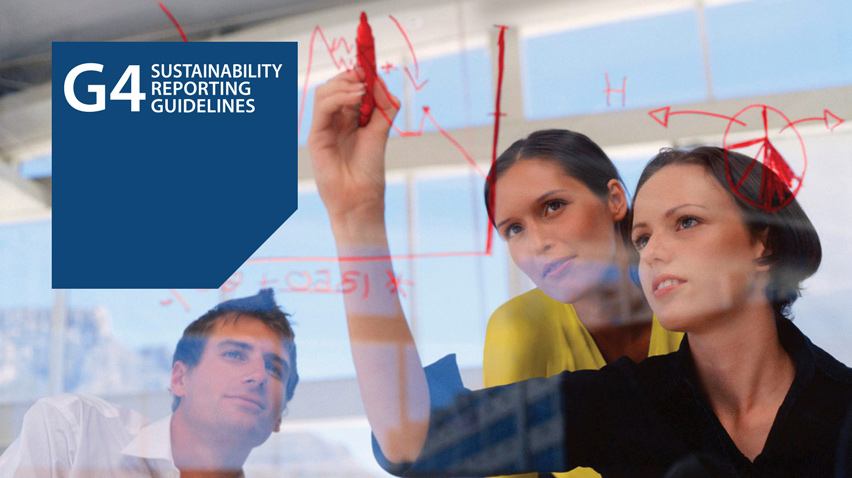Sustainability governance
We have put clear and effective governance structures in place throughout Shell, supported by standards, policies and controls. These are the foundation of the decisions we make and actions we take at every level of the company.
Our governance procedures are applied to all areas of decision-making across Shell. This involves the Board of Royal Dutch Shell plc, four Board committees, the Executive Committee (EC), and the teams and people who work across our operations. We make sure that decisions are communicated and implemented within the business.
The Corporate and Social Responsibility Committee (CSRC) is one of the Board committees. Its views and findings about our sustainability practices are integrated into Shell’s business to strengthen our procedures and operations within countries.
The overall accountability for sustainability within Shell lies with the Chief Executive Officer (CEO) and the EC. They are assisted by the health, safety, security, environment and social performance (HSSE & SP) executive team. Our standards are set out in our HSSE & SP Control Framework and apply to every Shell company. The process safety and HSSE & SP assurance team, with a mandate from the CSRC, provides independent assurance on compliance with the Control Framework.
Corporate and Social Responsibility Committee
The CSRC was established in 2005. The Committee’s role is to review and advise on policies and performance against the Shell General Business Principles, the Shell Code of Conduct and mandatory HSSE & SP standards.

In 2015, the CSRC visited an LNG-powered supply vessel at our deep-water operations in the Gulf of Mexico.
The Committee’s members bring a variety of experience from industry and national government. In the first five months of 2015, the Chairman of the CSRC was Charles O. Holliday, former CEO and Chairman of DuPont. He was succeeded in May 2015 by Hans Wijers, former CEO and Chairman of Akzo Nobel. Other members of the Committee in 2015 were Sir Nigel Sheinwald, a former British diplomat; Patricia A. Woertz, a business leader with extensive experience in the oil sector; and Gerrit Zalm, a former Minister of Finance of the Netherlands, who stood down from the CSRC at the end of 2015.
“The CSRC has a responsibility to review and assist Shell to continuously improve its business practices,” says Hans Wijers. “As a Committee, we apply our own individual experience and combined knowledge to review Shell’s standards and the sites we visit. It is a critical role that can lead to improvements in implementing safety and environmental standards and in Shell’s work with communities.”
Activities in 2015
The Committee met five times in 2015. During these formal meetings, the CSRC undertakes in-depth reviews of key exposure areas of our business, monitors any major issues of public concern and Shell’s strategy to address them, especially with respect to environmental and social issues. Some topics are reviewed on an annual basis, such as sustainability performance, process safety, and management and audit results.
Other topics are reviewed on a rotational basis – for example, maritime risks were reviewed in 2015. There are also subjects that are discussed because they are current. The Committee continued to spend time on topics related to climate change and the energy transition and also discussed developments in Alaska, Nigeria and seismic activity in Groningen, the Netherlands.
The Committee visits locations to meet Shell employees, contractors and suppliers and to help review whether we are adequately putting our standards into practice. During these visits, the Committee meets members of the local community and other interested parties, such as non-governmental organisations, to hear their views. After each visit, the Committee shares its observations with the Board of Directors.
In 2015, the CSRC visited Shell deep-water operations in the Gulf of Mexico and the Raízen biofuels business in Brazil. During each visit, the Committee met employees and representatives from government and non-governmental organisations. In 2015, individual CSRC members also visited the Peterhead carbon capture and storage project in the UK, the Moerdijk chemical plant and the Nederlandse Aardolie Maatschappij joint venture (NAM, Shell interest 50%) sites in the Netherlands.

John Nagy, CPEA
Vice President, IAPC
AECOM Global EHS Management Consulting Practice
Chicago, Illinois USA
External opinion
“The International Audit Protocol Consortium (IAPC) was founded by the global infrastructure firm, AECOM, to focus on promoting excellence in global environmental, health, and safety auditing. Shell has demonstrated outstanding leadership in the IAPC by participating across all consortium activities. This participation has included benchmarking key elements of its world-class HSSE & SP audit programme and sharing best practices and continuous improvement concepts.
The consortium’s 57 multinational member companies collaborate to advance audit practices. Much of the consortium’s success is based on open forums that enable the sharing of experiences. The future challenge for Shell – as a leading company within the IAPC – will be to promote critical insight and knowledge to even greater levels of assurance among internal and external stakeholders.”
